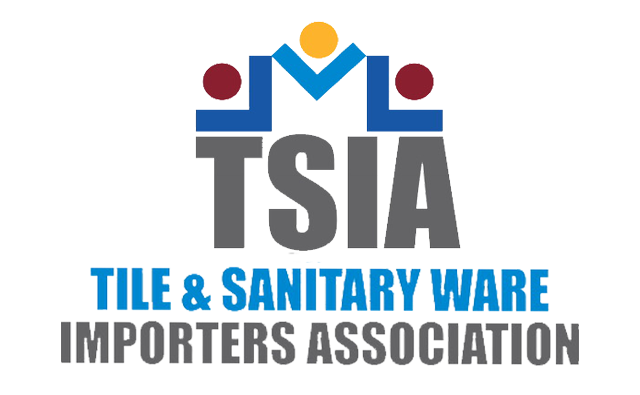The Tile & Sanitaryware Importers Association (TSIA), Sri Lanka’s main body established to address the grievances of tile and sanitaryware importers, has raised serious concerns about the Government’s import ban on their products and clarified how such a move is detrimental to the Government’s efforts to reduce foreign exchange outflow.
The TSIA consists of over 300 importers in Sri Lanka with a large majority of them having a long history of over 30 years of economic contribution to the country by way of tax revenue totalling Rs. 12 billion annually, employment opportunities to thousands, providing high-quality alternatives to local customers and many other benefits. At present, this industry provides direct and indirect employment to around 50,000 individuals islandwide. The 300-odd members have appointed over 2,000 dealers across the island who in turn have helped to create entrepreneurs and develop the micro rural economies in various cities and towns.
The TSIA points out that imposing the temporary import suspension on Tiles and Sanitaryware imports will have a cascading effect on auxiliary related industries such as Warehousing & Logistics, Clearing & Forwarding, Banking & Finance, Construction and Commercial Real Estates. Such actions are also expected to increase under employment among a large cross-section of professions such as Architects, Engineers, Consultants, Quantity Surveyors, Sub Contractors as well as tile masons and daily wage earners. TSIA members also occupy an average warehousing space of 2 million sq. ft. and approx. 200,000 sq. ft. of showroom retail space thus contributing to the real estate revenues in the country. Therefore, restricting imports would adversely impact the income generated for warehouse and showroom owners all across the island.
Kamil Hussain – President of the TSIA stated, “There is insufficient local production to meet the market demand and this has not only sent the prices higher but also had an adverse impact on the construction industry as well as domestic consumers when it comes to meeting project deadlines. It must be emphasized that while importers make a tax contribution of 100%, we service only 50% of the market share as local manufacturers are given preferential treatment in government tenders, allowing them to unfairly take advantage of a biased system. We understand the Government’s need to reduce foreign exchange outflow but what we are simply pointing out through our facts and figures is that if you look at the big picture, there is hardly any benefit to the country from the import suspension while the damage caused by it can be felt by thousands of Sri Lankans in all corners of the island.”
The TSIA states that its members are capable of bringing down major global players to invest in tile and sanitaryware manufacturing in Sri Lanka but the investment environment is not conducive for any such organisation to setup operations here due to the poor Return On Investment (ROI) as a result of the high energy cost in local manufacturing and the relatively smaller size of the market. Therefore, the organisation maintains that importing is significantly cheaper than locally manufacturing and can provide better quality and more designs. These benefits are a much-needed boost to the local construction industry in keeping tile and sanitaryware costs to a minimum especially given the current scenario where local tile and sanitaryware manufacturers have increased their prices due to the unavailability of imported products.
Ervin Bulathsinghala -Secretary General of TSIA commented, “It is a known fact that the manufacturing of tiles and sanitaryware locally requires a significant amount of energy which in turn means more foreign exchange indirectly goes out of the country. In fact, given the high energy requirement, the cost of local production is double that of the international finished product of the same or better quality. Also, the manufacturing process itself is harmful to the environment due to the emissions of gaseous effluents containing various quantities of pollutants, dust particles, lead and fluorine (oxides of Sulphur, Nitrogen, Carbon, Boron, Zinc, Calcium Compounds). Hence, this is a highly-polluted industry to which an environmentally-conscious country like Sri Lanka should give less priority to.”
He added, “Leveraging our long-standing relationships with our suppliers abroad, we have conducted negotiations and I am pleased to state that our suppliers are ready to support us and the country by way of an extended credit period to ease the foreign currency pressure. Given such a scenario, we very humbly appeal to the Government to reconsider and lift the Temporary Suspension imposed on imports of tiles and sanitaryware. By lifting the suspension, the Government can save livelihoods of thousands of men and women across the country and give them hope for the future during these troubled times.”
– ENDS –
